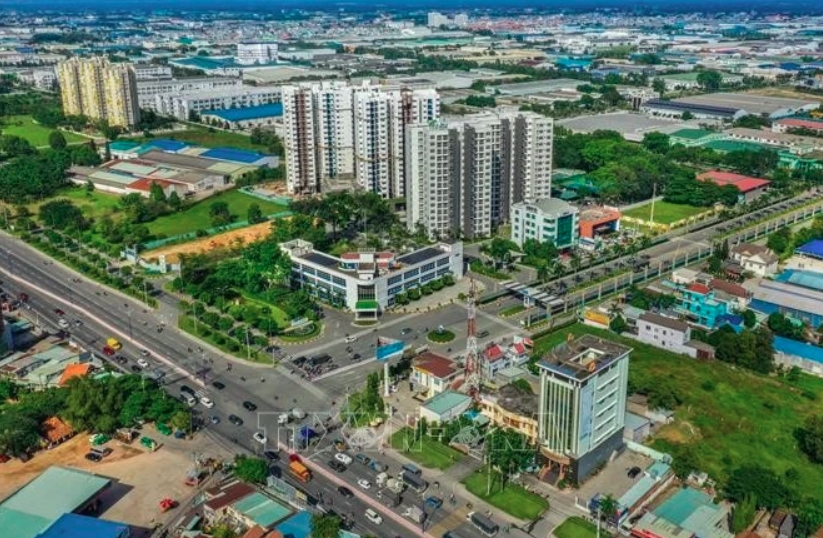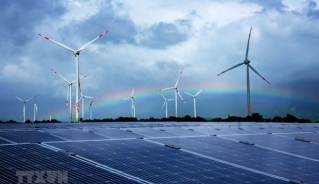Southeast region sees strong FDI inflow in early 2025
Vietnam’s southeast key economic region is showing promising signs of foreign direct investment (FDI) growth in the first two months of 2025, reinforcing its position as a prime destination for global capital.
Regional localities are rolling out new investment strategies focused on sustainability, high-quality projects, digital transformation, and green and circular economies.
Positive investment momentum
Despite global economic uncertainties, Binh Duong province has exceeded its FDI target for 2024 and remains the second-largest recipient of foreign investment, after Ho Chi Minh City.
The province has so far this year approved seven FDI projects worth nearly US$1 billion, spanning high-tech industries, electronics manufacturing, logistics, and industrial real estate.
At a recent discussion on investment expansion in Binh Duong, Wong Man Li, chairman of Hong Kong-based Manwah Group, praised the province’s impressive economic growth and favourable investment environment. He said the company plans to inject an additional US$50 million into a new factory to scale up local production.
Binh Duong is also working with the World Bank to develop eco-industrial parks incorporating green energy, solar power, and smart water management. This aligns with the province’s 2021–2030 master plan, which envisions next-generation industrial zones as key drivers for high-tech investment.
Meanwhile, Dong Nai province recently granted investment certificates for 14 projects in its industrial zones, totalling US$738 million. Of this, US$243 million came from seven new FDI projects.
The province has set an FDI target of US$1.1 billion for 2025, equivalent to its 2024 goal. However, in just over a month, Dong Nai has already attracted nearly US$690 million, reaching 63% of its annual target. Investments are spread across 10 new FDI projects and 16 capital expansion initiatives, mainly in high-tech, eco-friendly industries that require less labour and meet environmental standards.
Competitive advantages in FDI attraction
Binh Duong has established itself as a prime destination for FDI, thanks to its well-developed infrastructure, attractive investment policies, and pro-business environment. Its emphasis on high-tech industries, smart manufacturing, and digital transformation continues to attract major global players.
The province is also streamlining administrative procedures to speed up investment approvals and assist businesses in overcoming challenges.
According to Mai Hung Dung, Standing Vice Chairman of the Binh Duong People’s Committee, the province is ramping up efforts to enhance infrastructure, improve investment conditions, and develop a high-quality workforce.
To attract more FDI, Binh Duong has designated nearly 20,000 hectares for next-generation industrial zones along major transport corridors such as Ring Roads 3 and 4, the Ho Chi Minh City–Thu Dau Mot–Chon Thanh Expressway, and the Ho Chi Minh Highway.
Similarly, Dong Nai is accelerating the development of four new industrial parks approved in 2024, adding more than 2,500 hectares of industrial land for investors. These include the Bau Can–Tan Hiep, Phuoc Binh 2, Long Duc 3, and Xuan Que–Song Nhan industrial zones, set to provide prime locations for foreign businesses.
Dong Nai People’s Committee Chairman Vo Tan Duc reaffirmed the province’s commitment to improving the investment climate and supporting businesses across key sectors, including industry, tourism, agriculture, infrastructure, and real estate. The local administration is also actively engaging with FDI enterprises to address their concerns and facilitate investment opportunities through domestic and international promotion events.
With a strong start and a wealth of competitive advantages, Dong Nai’s FDI inflows are expected to exceed projections for 2025, further strengthening its position as a top investment hub in Vietnam.



